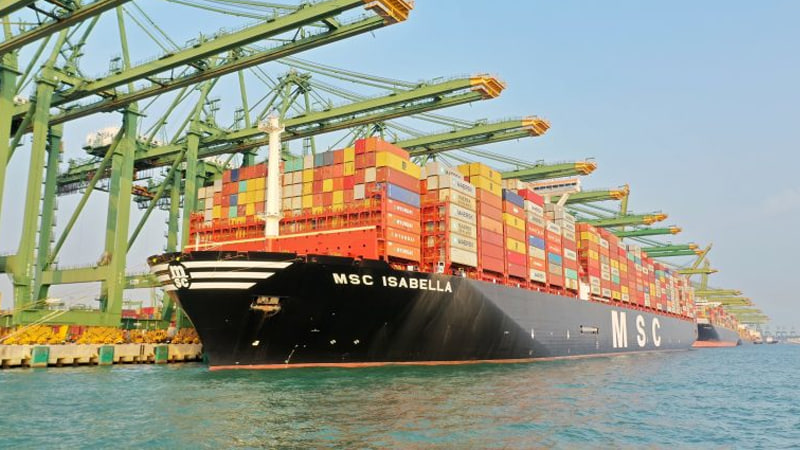SpaceX's Starlink in Brazil: A Case Study in Connectivity & Geopolitics
Meta Description: Explore the complexities of SpaceX's Starlink in Brazil, discussing the recent account freeze, Elon Musk's response, and the broader implications for internet access, geopolitics, and the future of satellite technology.
Imagine this: You're in a remote village in Brazil, miles from the nearest city, relying on a shaky, unreliable internet connection. Suddenly, a lifeline appears – Starlink, SpaceX's revolutionary satellite internet service, promises high-speed, reliable connectivity. It's a game-changer, opening doors to education, healthcare, and economic opportunities. But then, the unthinkable happens: Starlink's Brazilian account is frozen, leaving users stranded in a digital desert. This isn't just a tech hiccup; it's a compelling story of geopolitics, innovation, and the fight for internet access.
The Starlink Saga in Brazil
The recent saga of SpaceX's Starlink in Brazil highlights the complex interplay between technology, politics, and access to the internet. In August 2023, the Brazilian government froze Starlink's bank account, effectively halting the service's operations in the country. This unexpected move sparked a wave of controversy and raised questions about the future of satellite internet in Brazil.
Diving into the Details: The Seed Keyword
What sparked the Starlink freeze?
The official reason cited by the Brazilian government was Starlink's failure to obtain the necessary authorization to operate in the country. This authorization is crucial for ensuring regulatory compliance and protecting Brazilian national security. However, many observers argued that the true reason behind the freeze stemmed from a broader geopolitical struggle.
The Geopolitical Undercurrents
The timing of the Starlink freeze coincided with a tense political climate in Brazil. The country was gearing up for a presidential election, and President Jair Bolsonaro's administration had been increasingly vocal about its concerns over the potential for foreign interference in national affairs. Some critics even accused the government of using the Starlink freeze as a tool to suppress dissent and control information flow.
Elon Musk's Response: A Hero Emerges?
In response to the account freeze, Elon Musk, SpaceX's CEO, took to X (formerly Twitter) to declare that Starlink would be free for Brazilian users until the issue was resolved. He emphasized the vital role Starlink played in providing connectivity to remote schools and hospitals, highlighting the humanitarian impact of the service. This move was seen by many as a bold, strategic move, showcasing Musk's commitment to internet access and potentially winning over public opinion in Brazil.
Beyond the Headlines: The Bigger Picture
The Starlink saga in Brazil is a microcosm of the global debate surrounding internet access, innovation, and the role of technology in shaping societies. It underscores the importance of:
- Digital Inclusion: The Starlink freeze underscored the importance of bridging the digital divide and ensuring equitable access to the internet, particularly in remote and underserved communities.
- Geopolitical Power Plays: The incident highlighted the delicate balance between national security concerns and the free flow of information in a globalized world.
- The Future of Satellite Internet: The Starlink freeze sparked renewed interest in the potential of satellite internet as a reliable alternative to traditional broadband infrastructure, particularly in regions where terrestrial connectivity is limited.
Looking Ahead: The Road to Connectivity
The Starlink freeze in Brazil is a reminder that the path to universal internet access is not without its challenges. The saga serves as a compelling case study in the complex interplay of technology, politics, and access to information. As the world becomes increasingly interconnected, the need for reliable, affordable, and equitable internet access will only grow more critical.
FAQs: Addressing Your Questions
Q: What is Starlink?
A: Starlink is a satellite internet service developed by SpaceX. It uses a constellation of thousands of low Earth orbit (LEO) satellites to provide high-speed internet access to users around the globe, including in remote areas where traditional broadband infrastructure is limited.
Q: Why is Starlink important for Brazil?
A: Starlink offers a potential solution to Brazil's vast digital divide, connecting remote communities that lack access to reliable internet services. This is particularly crucial for sectors like education, healthcare, and economic development.
Q: Does Starlink face competition in Brazil?
A: Yes, Starlink competes with other satellite internet providers in Brazil, such as Amazon's Project Kuiper and Telesat's Lightspeed. However, Starlink has a significant head start in terms of its constellation size and deployment.
Q: Will the Starlink freeze have a long-term impact on the service in Brazil?
A: The long-term impact of the freeze remains uncertain. The outcome of negotiations between SpaceX and the Brazilian government will determine whether Starlink can resume operations in Brazil and on what terms.
Q: What are the broader implications of the Starlink freeze?
A: The Starlink freeze highlights the challenges of navigating the complex regulatory landscape surrounding satellite internet and underscores the importance of fostering a collaborative environment between governments, businesses, and users to ensure equitable access to this critical technology.
Conclusion: A Fight for Connectivity
The Starlink saga in Brazil is a compelling reminder that the fight for universal internet access is ongoing. It's a story of innovation, geopolitics, and the importance of bridging the digital divide. As we move towards a future where connectivity is increasingly essential for individuals, communities, and nations, the lessons learned from the Starlink freeze in Brazil will be critical for shaping the future of internet access worldwide.



